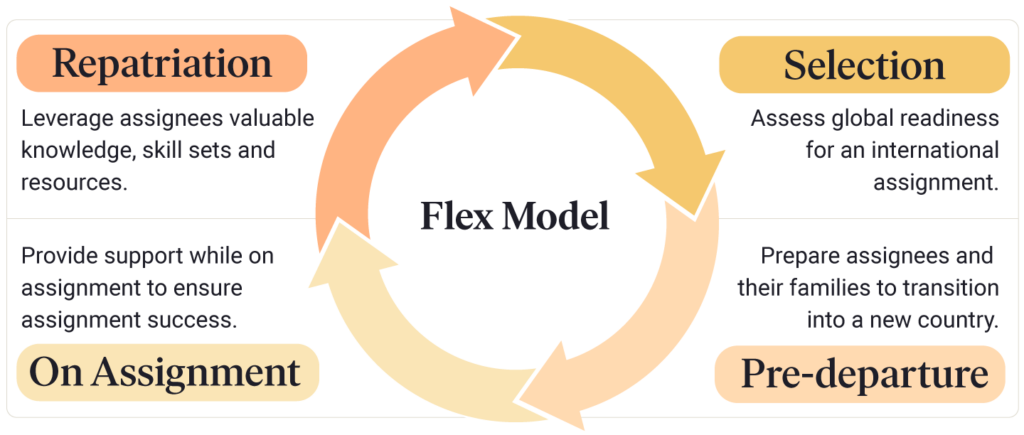


At Aperian, every employee is able to take a day off of work each year for a volunteer experience of their choice. One of our Senior Consultants, Ekaterina Von Gertten, who is an expatriate herself, took inspiration from her background as a coach and facilitator to support women who had sought refuge in Malmö, Sweden after fleeing the war in Ukraine.
While some relocations are driven by job assignments, there are unfortunate situations where relocation becomes necessary for safety reasons. This was the reality for the women Ekaterina had the opportunity to meet and assist in Sweden. In collaboration with Care Myllret, Ekaterina conducted a relocation coaching session with them. The session provided a platform for them to explore and discuss the significant differences between Swedish and Ukrainian culture. They also acquired new tools and skills to aid in their successful adaptation to their new country. Most importantly, the coaching session created a safe space where they could express and articulate their traumatic experiences of seeking refuge in a foreign land.
Although cultural training may not initially appear to be a critical aspect amidst the various tasks involved in relocation, it can actually be the single most influential factor in ensuring a successful expatriate journey before, during, and after the assignment. Relocating to a new place is a deeply personal experience, with individuals preparing, reacting, and engaging in different ways. Cultural coaching must be tailored to meet the unique needs of each person, and our flex model allows expatriates to choose the format and timing that works best for them.

Cultural immersion may have its challenges and moments of uncertainty, loneliness, or even resentment. However, there are instances where relocation is perceived as a gift—a long-awaited change of scenery, a thrilling new adventure, or a sense of liberation. One of the Ukrainian women in Ekaterina’s coaching session exemplified this perspective. She expressed her excitement to Ekaterina about this fresh start, describing her relocation as one of the most significant gifts life had given her. Outside of her Swedish lessons, she has an abundance of free time and newfound freedom of choice. She is ready for what lays ahead, and cultural coaching is the key to unlocking these opportunities.
Many Ukrainian women had to leave behind significant aspects of their lives when they relocated. Some had achieved remarkable success in their professions but now feel lost without their clinics and the careers they had devoted their lives to. They want to thrive in this new phase but are overwhelmed by a sense of identity loss, as well as the absence of their families and the grief they feel for their war-affected communities. For those who feel stuck, cultural coaching can be a vital support system, assisting them in navigating through their range of emotions and taking each necessary step toward building their lives in a new cultural context.
In certain instances, expatriates, particularly those relocating against their own desires, find themselves trapped in a profound sense of grief and loss. They exhibit unmistakable signs of denial, rendering them unable to absorb new information or effectively plan for their new circumstances. Overwhelmed by the weight of cognitive and emotional overload, they lack the internal resources and emotional fortitude needed to process the overwhelming array of emotions: grief, panic, fear, and uncertainty. Furthermore, cultural and trans-generational trauma can intensify their state of denial, particularly for those fleeing the war in their home country. These individuals grapple with a multitude of intricate emotions, their ability to focus hampered by the constant turmoil. In this context, cultural coaching emerges as an invaluable lifeline for expatriates, equipping them with the indispensable guidance to construct a new chapter of their lives, one task at a time.
—
Even within these categories, there exists a remarkable diversity of experiences. No matter how prepared expatriates are for relocation, there is a good chance they’ll be grappling with a wider range of emotions and circumstances than they anticipate.
With Aperian coaches with robust relocation training experience stationed all across the world, you can trust that your expatriates will have the support necessary to help them thrive.